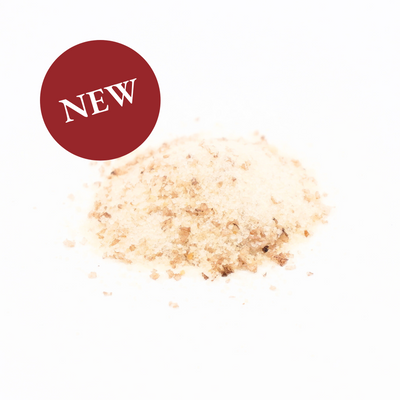Squalene and EVOO
Squalene. It’s the kind of name that stands out on an ingredient label. Even more so these days now that it’s becoming popular in personal care, beauty, and health products. So, what is squalene and why is it getting so much attention now?
What is Squalene?
Squalene is a colourless oil that occurs widely in nature. Both plants and animals produce it as an intermediate that is turned into other useful cellular compounds. The human body also produces squalene, which we use to protect and moisturize our skin.

Discovery
We’ve known about squalene for around 100 years. It was first isolated by Japanese chemist Mitsumaru Tsujimoto who discovered it in the liver of a deep-sea shark. In a nod to the shark’s biological family (Squalidae) the compound was named “squalene.”
Chemical Composition
Squalene is a triterpene hydrocarbon. As a hydrocarbon, it’s composed solely of hydrogen and carbon atoms. As a triterpene, its structure is formed by three common chemical building blocks called “terpenes” which give it a chemical formula of C₃₀H₅₀.

Production
Initially, much of the available squalene came from its original source: sharks. But as we got a better hold of our ecological sensibilities, production was expanded to a more sustainable source: olives. Olives make a fantastic candidate for squalene extraction as they contain levels 20x higher than other vegetable oils.
Using Squalene
Squalene is used primarily in products that protect the skin. Given that the skin itself produces squalene, adding more via personal care regimens increases the protective factor. Let’s go into a little more detail on how exactly that works.

Emollient & Occlusive
In regards to topical application, squalene acts as both an emollient and an occlusive. Emollients soften and smooth the skin by repairing surface damage while occlusives create a barrier between the skin and the environment that traps moisture.
Qualities
Keeping skin properly protected and moisturized is essential. Adding squalene to your skincare regimen can:
- Improve elasticity
- Increase suppleness
- Resist aging
- Prevent dryness & flaking

Antioxidant
Squalene also serves as a superb antioxidant. That means that it helps neutralize the negative effects of free radicals in the skin. This counteracts damage from UV light exposure and other harmful environmental factors.
Dietary Squalene
Beyond topical application, squalene can also help as part of your diet. As an antioxidant, squalene can:
- Decrease inflammation
- Control cholesterol oxidation in arteries
- Contribute anti-cancer properties
- Contribute anti-Alzheimer’s properties
It is also worth noting that while squalene is an intermediate in cholesterol synthesis, it doesn’t contribute to an increase in cholesterol. Score!

Squalene Everyday
So, how best to get more squalene into your diet? Extra virgin olive oil, of course! Adding EVOO into your diet as a replacement for other oils or butter is a perfect way to increase your squalene intake and reap its antioxidant benefits. Pop into your local Evoolution to check out some of our favourite EVOO-based recipes for a boost of plant-derived squalene!




Hi @Deborah, thanks for your question! Ultimately, you could use any olive oil for such a mix. If you want something flavoured, any of our citrus fused olive oils would be a great choice. If you want just a plain EVOO, any that suit your flavour palate will provide a great dose of heart-healthy fats. If you don’t mind the bitter and pungent notes that accompany a robust varietal, those are going to be the most beneficial in terms of biophenols and antioxidants. Enjoy!
Which of your olive oil could I use to mix with lemon to do olive oil and lemon shots?
Hi @Angie, thanks for your comment! Yes, squalene itself is typically listed as an ingredient in cosmetics and body care products. If you see olive oil as an ingredient, then by default there will be squalene present in that product as well, but often isolated squalene is added as an ingredient to allow for a higher concentration. As for your second question, it depends on what goal you are trying to achieve. For internal health, incorporating more EVOO into your diet is a great idea. If moisturizing and protecting the skin is your primary goal, then looking for external products with squalene is a great idea. Or, go for both approaches to get the maximum benefit, inside and out!
If I purchase a skin care product, can squalene be listed as an ingredient? Is it better to add a good quality extra olive oil to my diet or to use it directly on my skin?
Leave a comment